Navigating a leasing agreement dispute can be a challenging experience, but understanding your rights and responsibilities is essential for a smooth resolution. Whether it's about late payments, property maintenance, or lease terms, clearly communicating your concerns can help pave the way for a productive dialogue. In this article, we'll break down the key elements of a leasing agreement dispute notice and provide you with a template to streamline the process. So, let's dive in and explore how you can effectively address and resolve your leasing disputes!
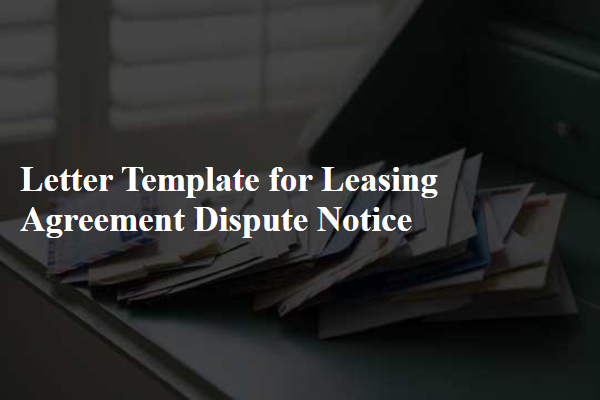
Clear Identification of Parties
In a leasing agreement dispute, clear identification of parties is crucial for establishing accountability and ensuring transparency in communication. This includes full legal names of all individuals or entities involved. For landlords, this encompasses the property owner's name, which may differ from the management company handling leasing matters. For tenants, accurate identification includes their names as listed on the lease agreement, as well as any co-signers or roommates specified in the contract. Address details, including street names, apartment numbers, and city, are essential for pinpointing the exact location of the leased property, such as "123 Elm Street, Apartment 4B, Springfield." Proper identification assists in resolving disputes efficiently by eliminating any ambiguity regarding the parties involved and their respective rights.
Specific Lease Agreement Details
A leasing agreement dispute notice requires clarity regarding the specific lease agreement details, such as the lease start date of January 1, 2023, and end date of December 31, 2023, for the apartment located at 123 Maple Street, Springfield. Rent payments amounting to $1,200 per month, due on the first of each month, must be highlighted. Specify the violation or dispute, like the landlord's failure to provide essential repairs as outlined in Section 4 of the lease or any discrepancies in the security deposit of $1,500. Include a timeline for the resolution process, such as requesting a written response by December 15, 2023, to ensure compliance with local laws regarding dispute resolution.
Exact Nature of Dispute
The exact nature of the leasing agreement dispute often arises from discrepancies in rent payment schedules, such as unpaid rent for the months of June and July 2023. Issues may also include maintenance responsibilities, where the tenant claims that the landlord did not address plumbing issues in the apartment at 123 Maple Street, impacting livability. Another common dispute involves lease term violations, for instance, the tenant's assertion that the landlord entered the property without proper notice, which contradicts the terms outlined in the lease dated January 1, 2023. Additionally, disagreements over security deposit returns, often amounting to significant sums like $1,500, can lead to disputes if the landlord fails to provide a detailed account of deductions made. Clear documentation of these points is crucial for resolution.
Desired Resolution or Action
The desired resolution for the leasing agreement dispute involves refunding the security deposit of $1,500 withheld unjustly due to alleged damages not present during the final inspection at 123 Maple Street, Springfield. A detailed breakdown of costs incurred for repairs (totaling $750) should be provided to substantiate any claims. Additionally, the reinstatement of original lease terms, particularly clauses regarding maintenance responsibilities, requires clarification. Timely resolution within 15 business days is sought to avoid escalation to mediation or legal action. Enhanced communication, preferably through certified mail, will ensure all parties remain informed throughout this process.
Legal and Compliance References
In leasing agreements, disputes often arise from various issues such as late payments, property maintenance, or lease terminations, impacting both parties involved in the contractual relationship. Legal frameworks guiding these disputes typically include statutes like the Residential Tenancies Act and the Fair Housing Act, which protect tenant rights and landlord responsibilities. Local regulations in specific jurisdictions, such as Los Angeles or New York City, may impose additional rules regarding security deposits and eviction processes. Compliance with these laws is crucial; failing to do so could result in penalties or voiding of the lease. Mediation services, often provided by local housing authorities, can facilitate resolution while avoiding costly litigation.

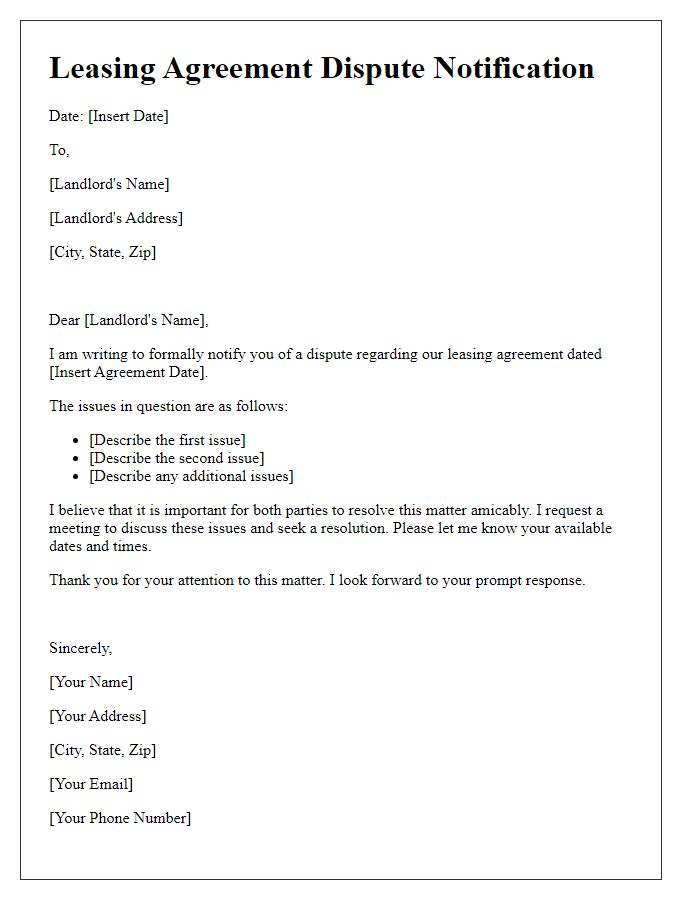
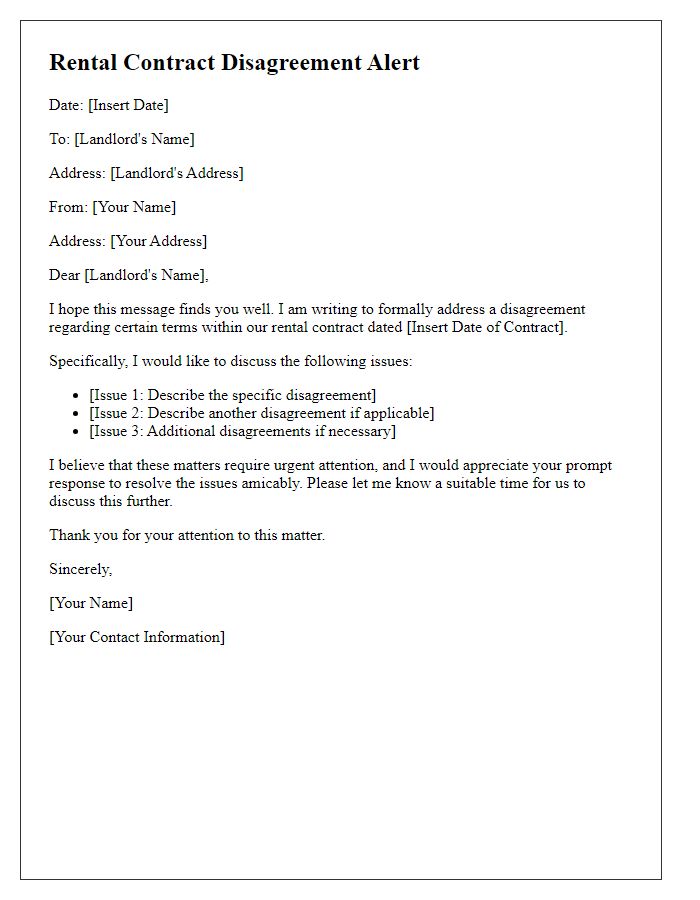
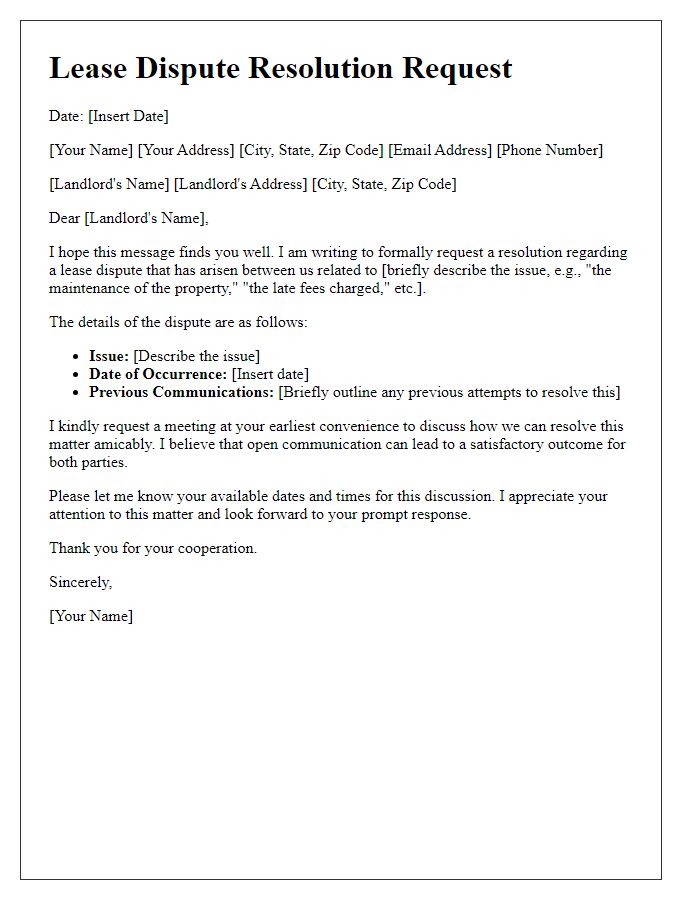
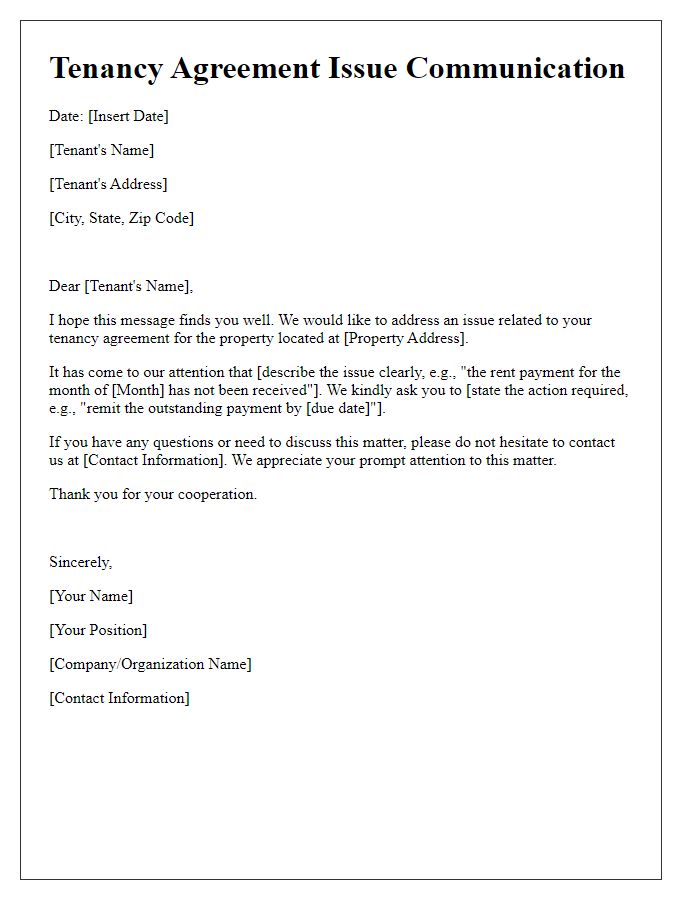
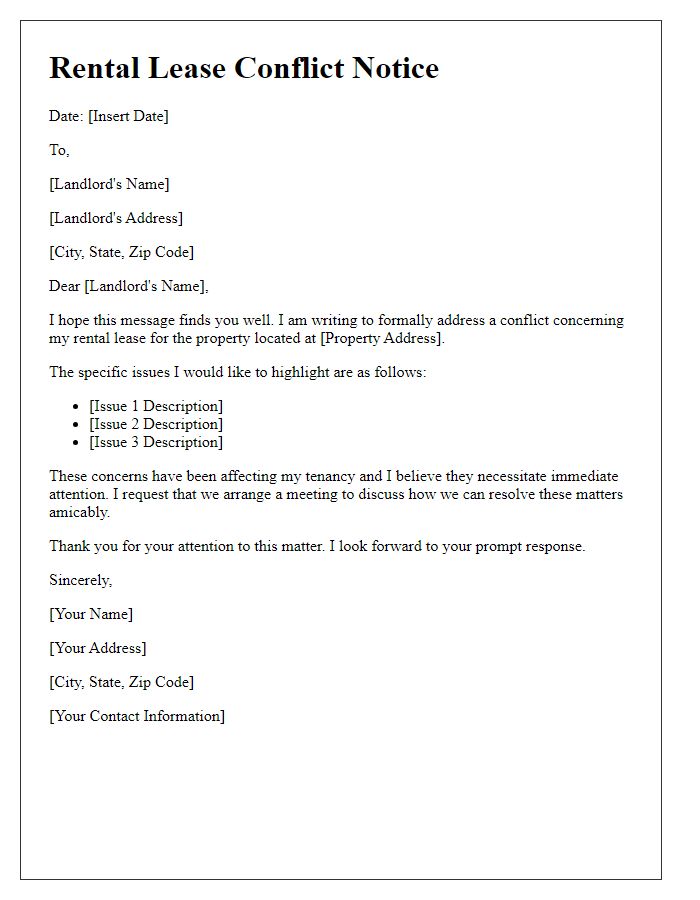
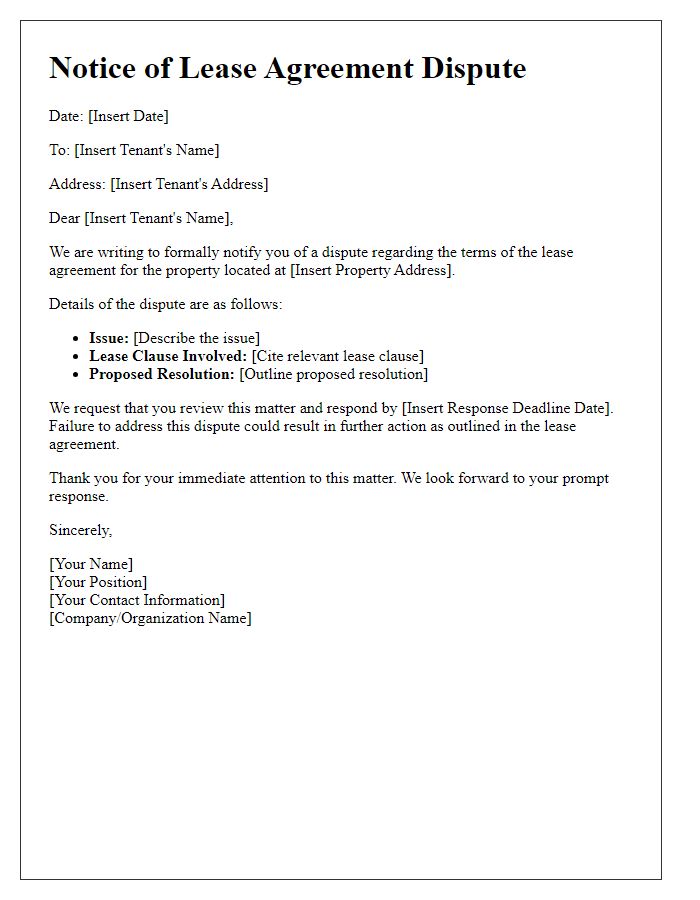
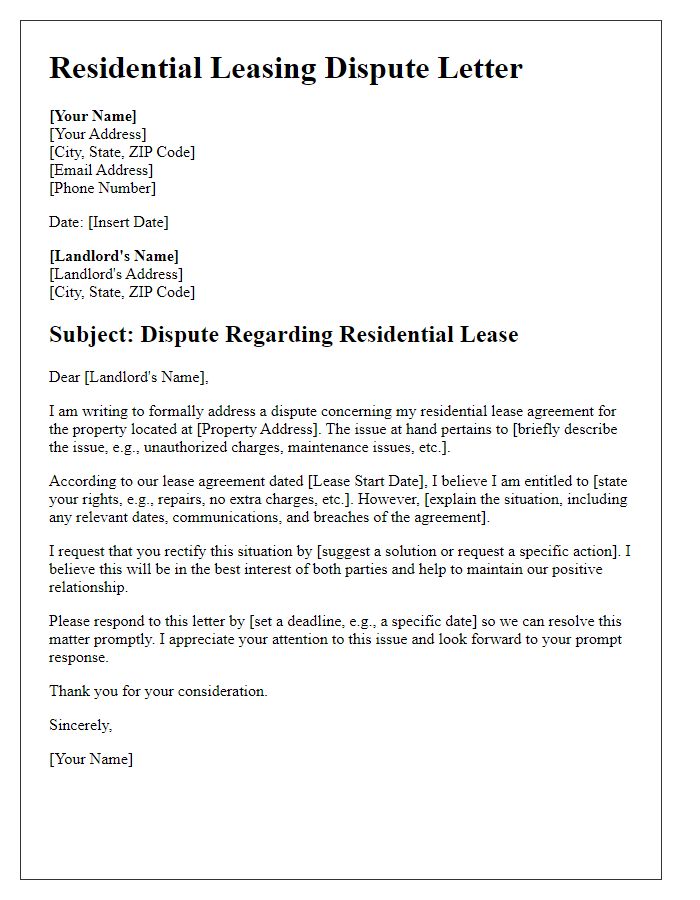
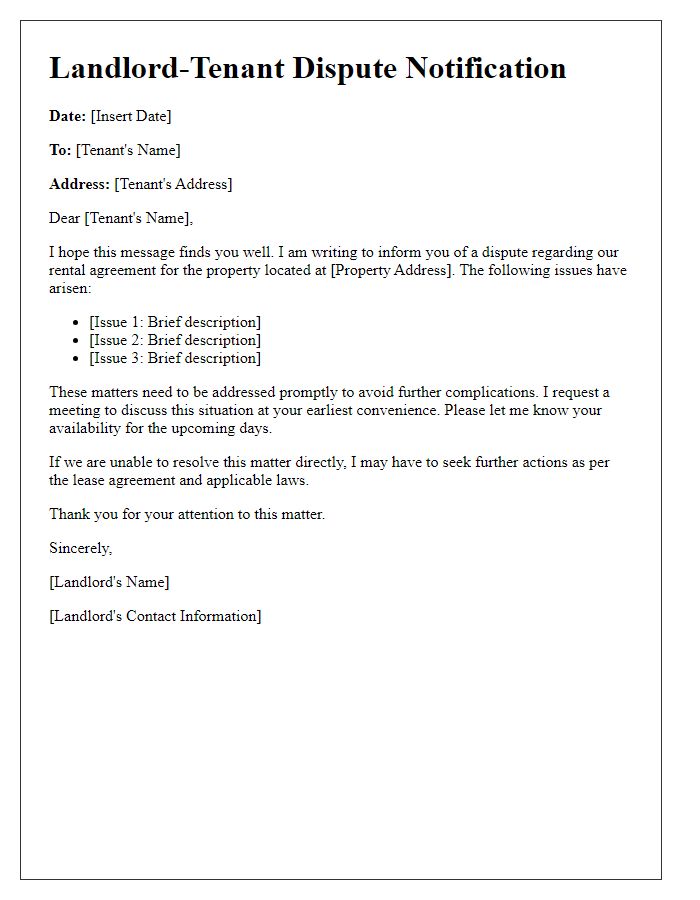
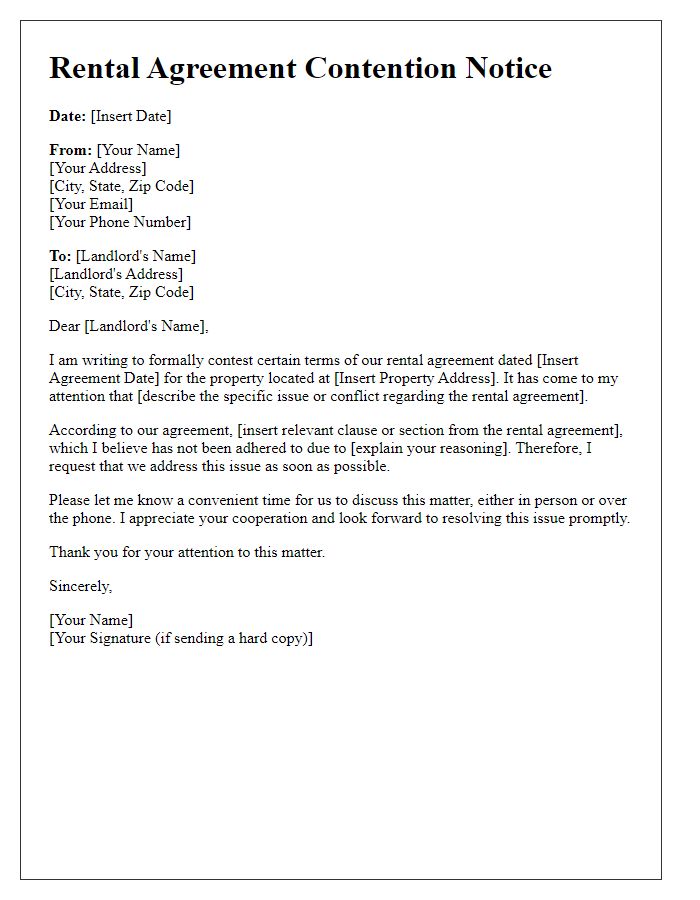
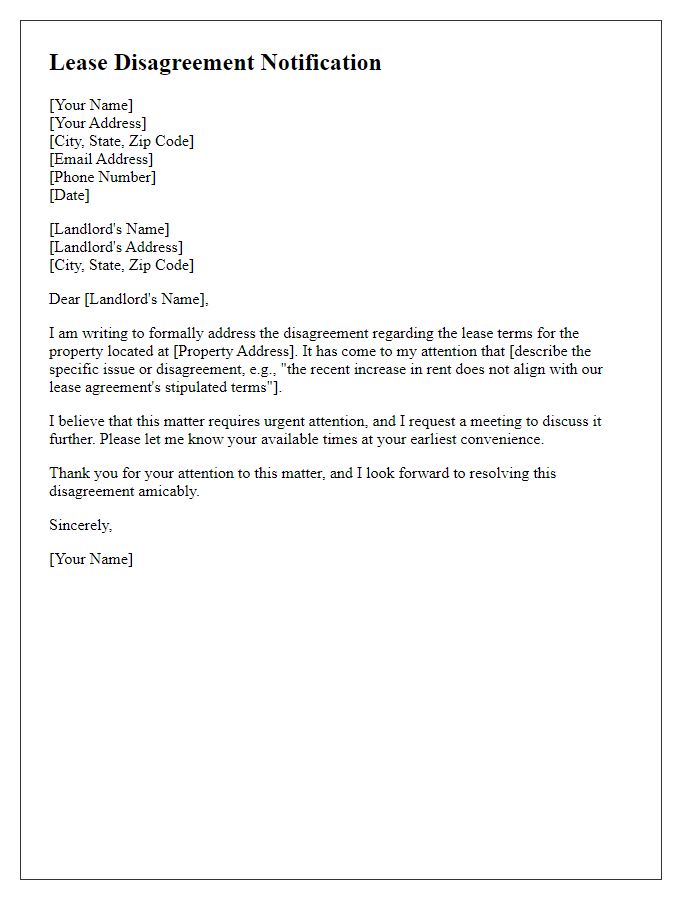

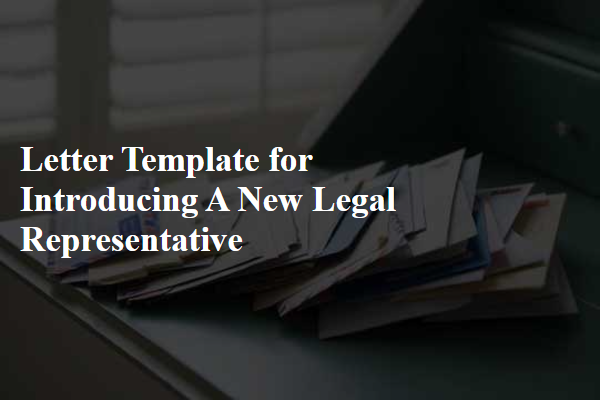
Comments